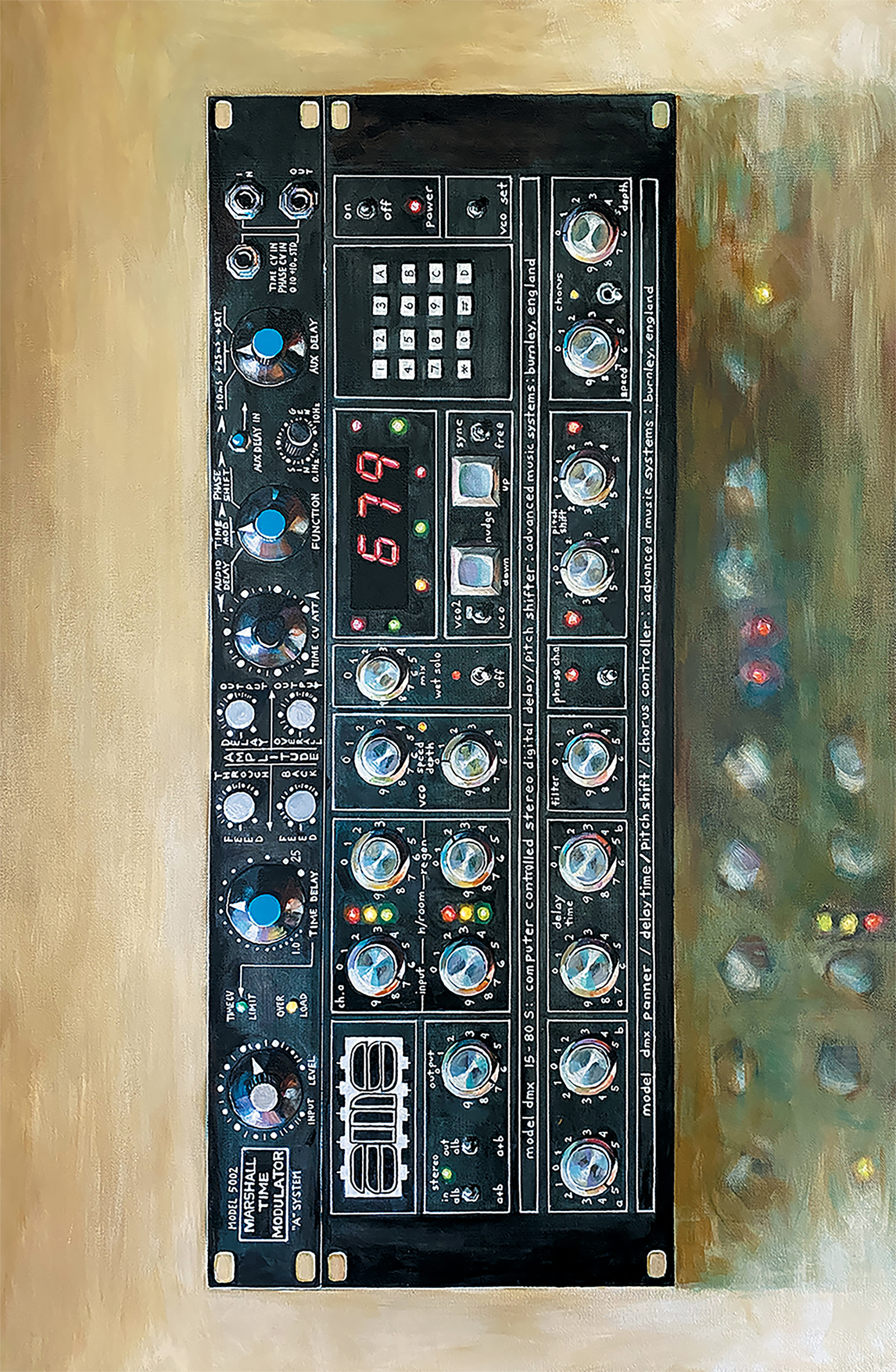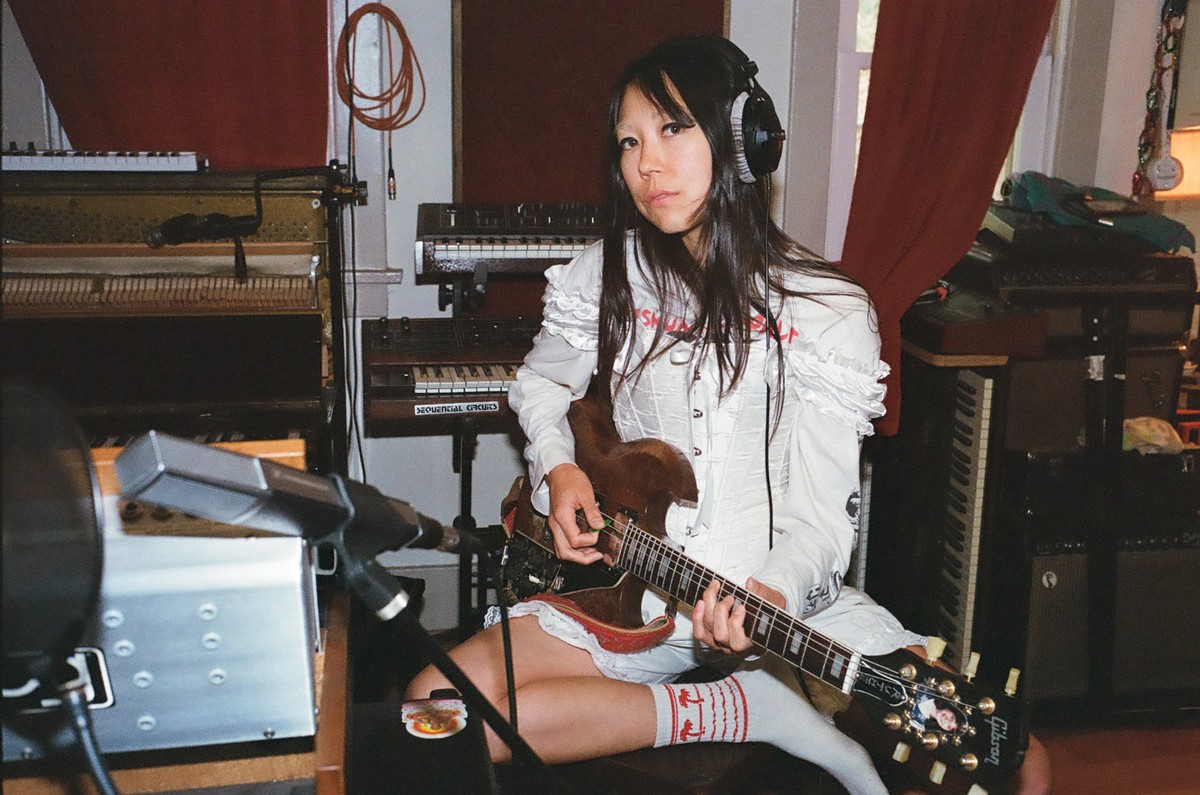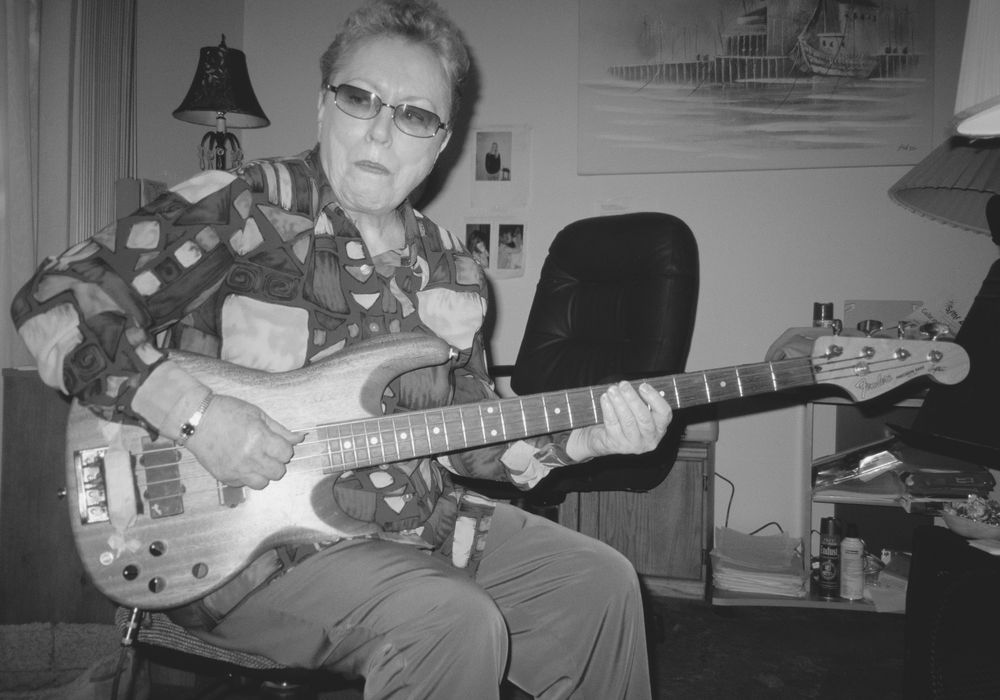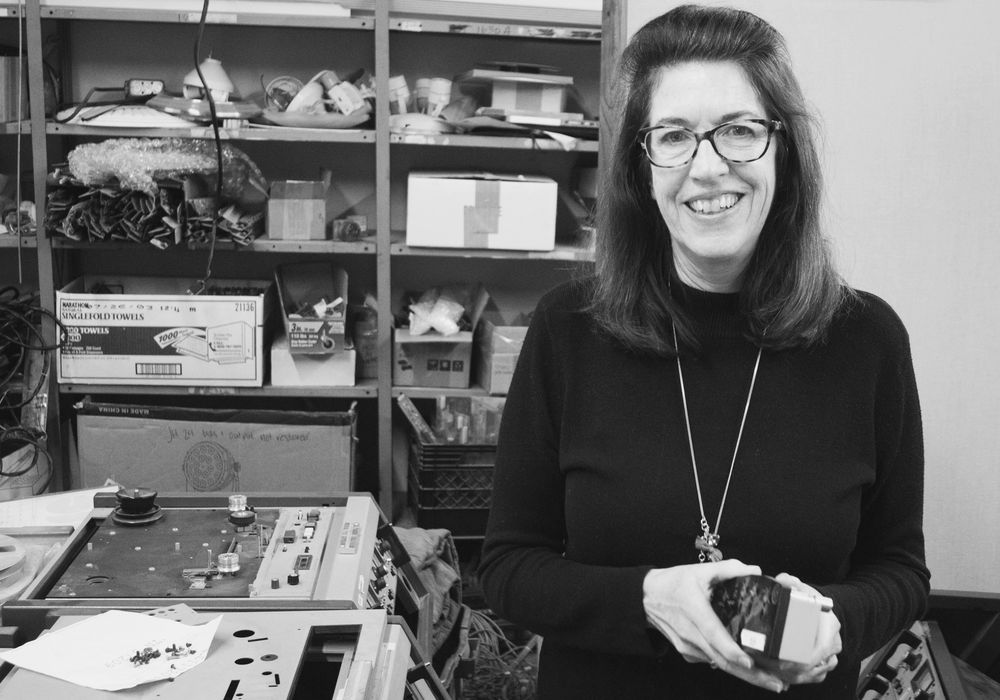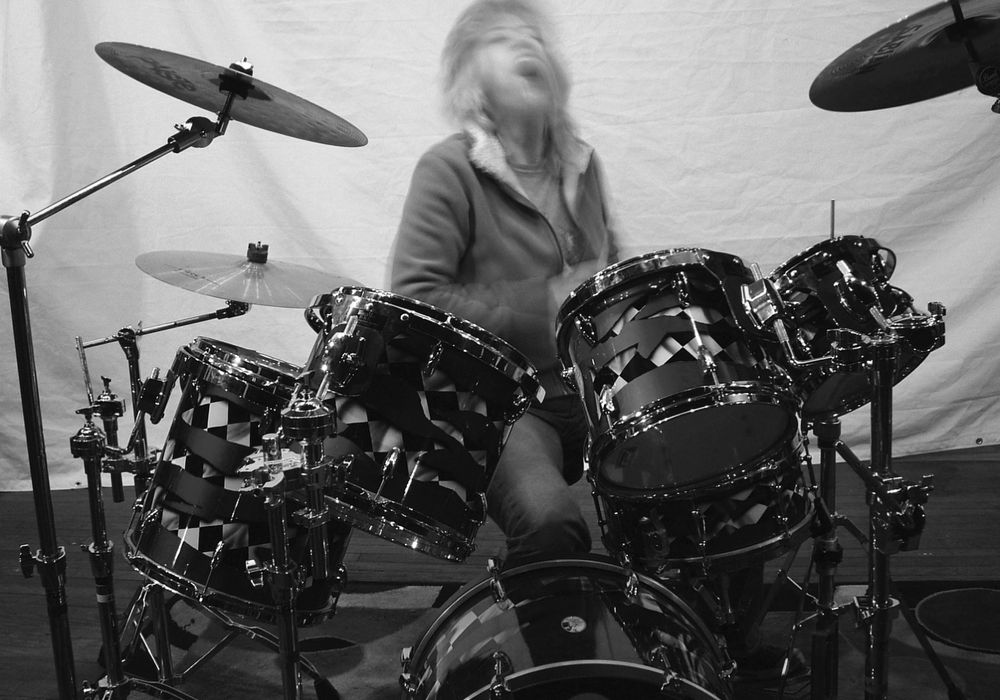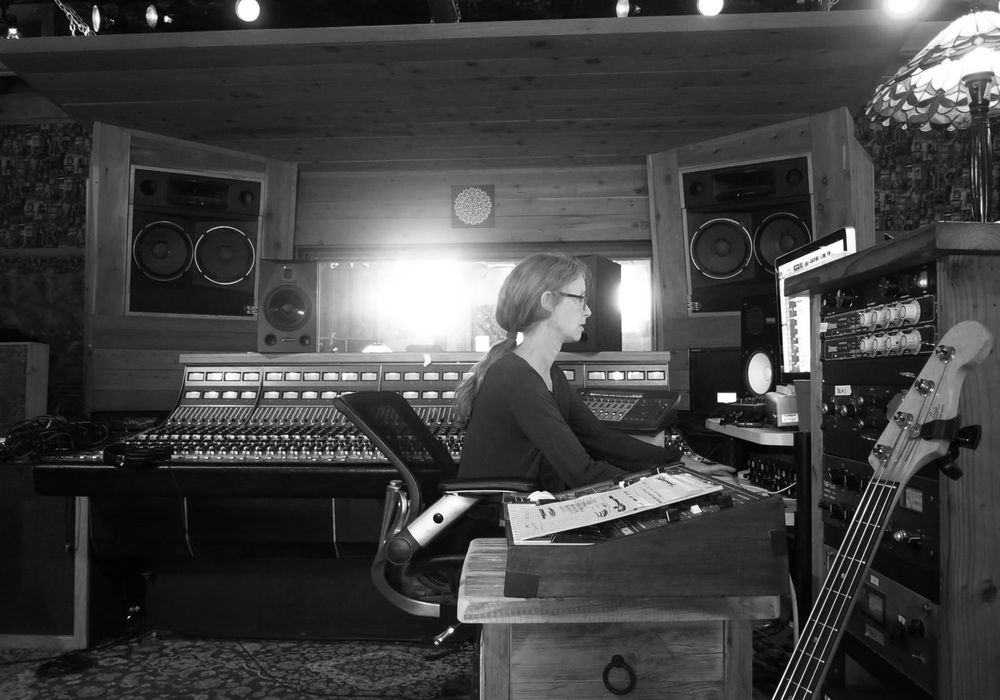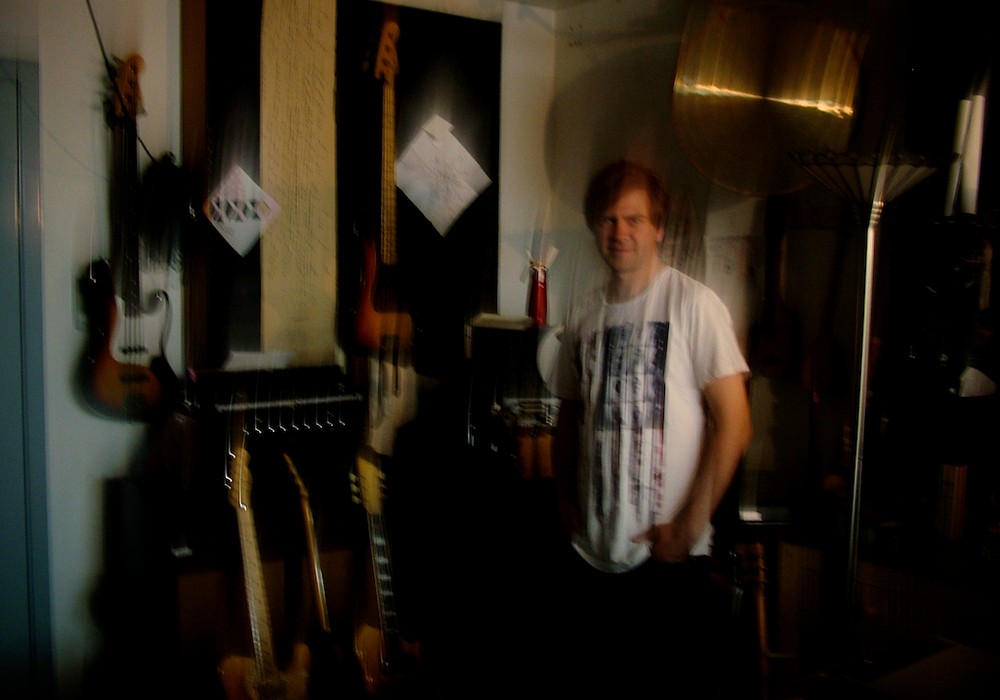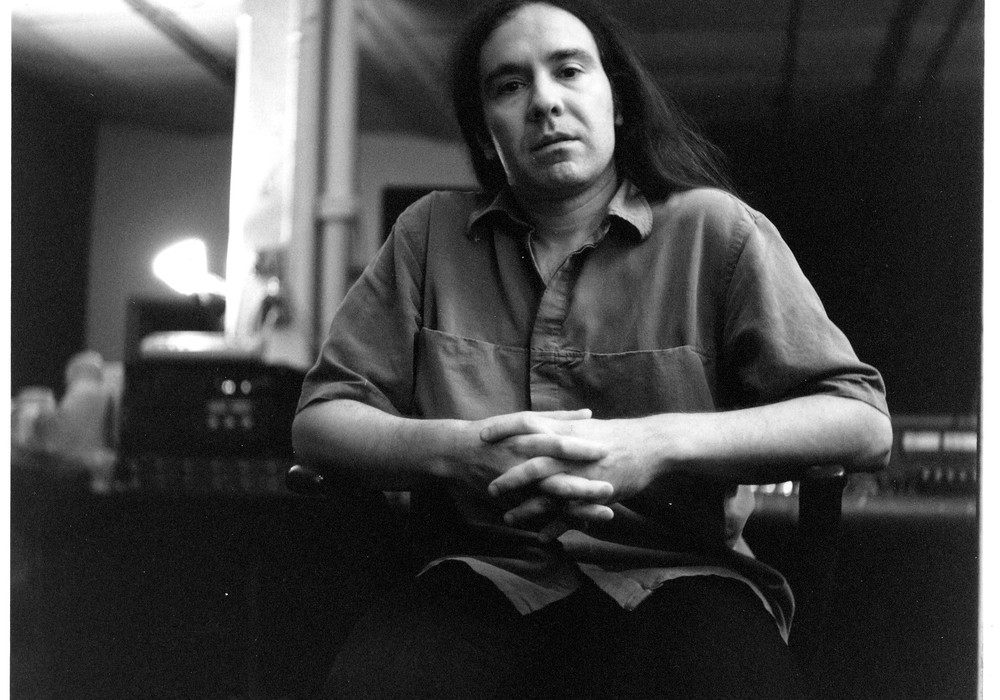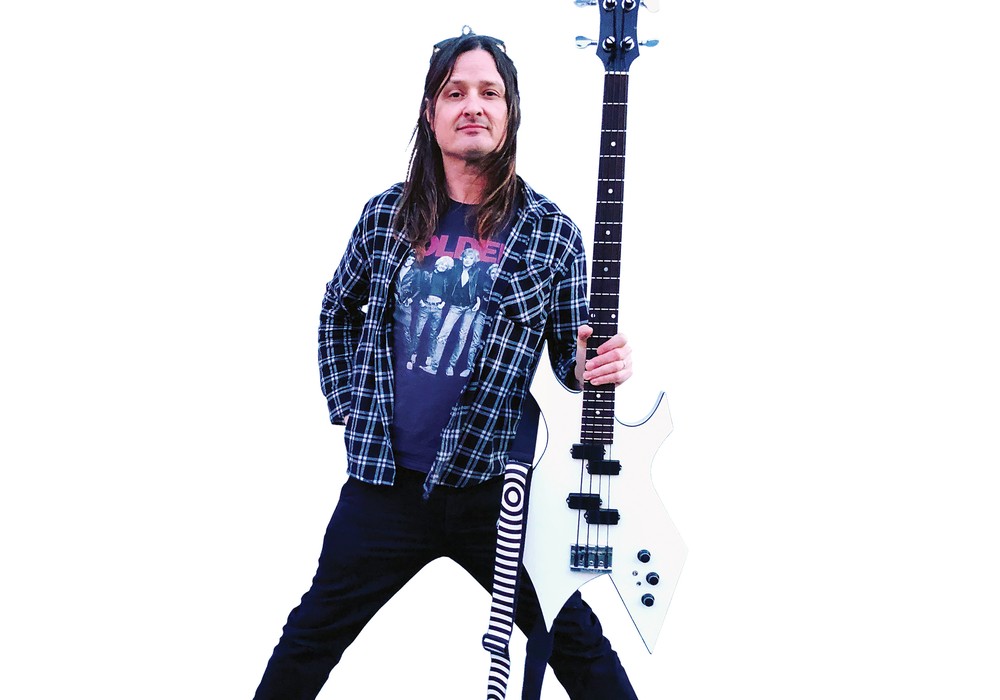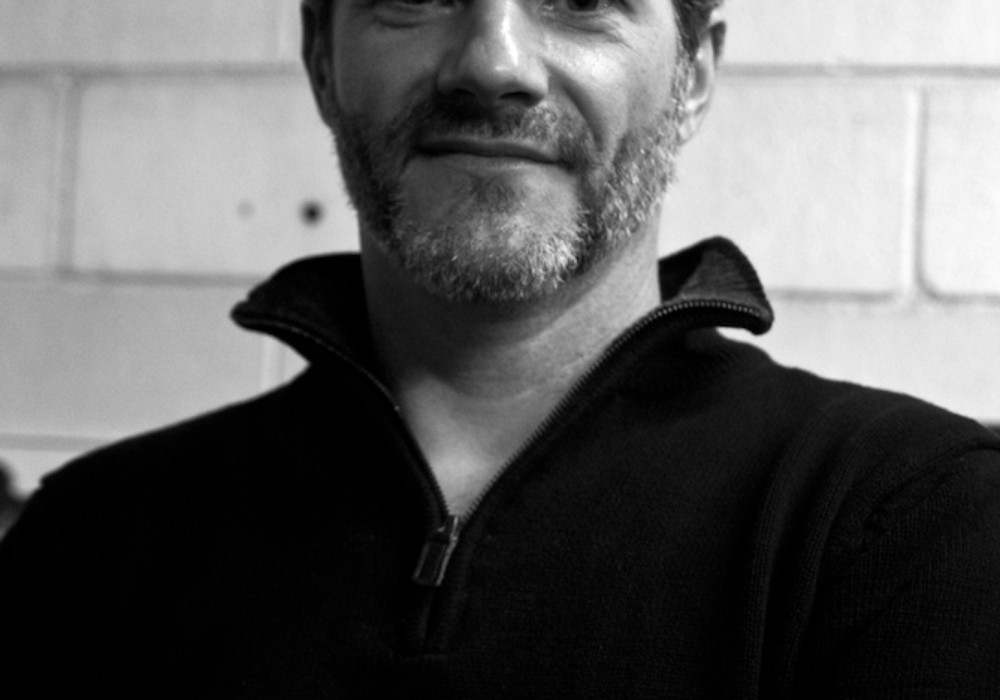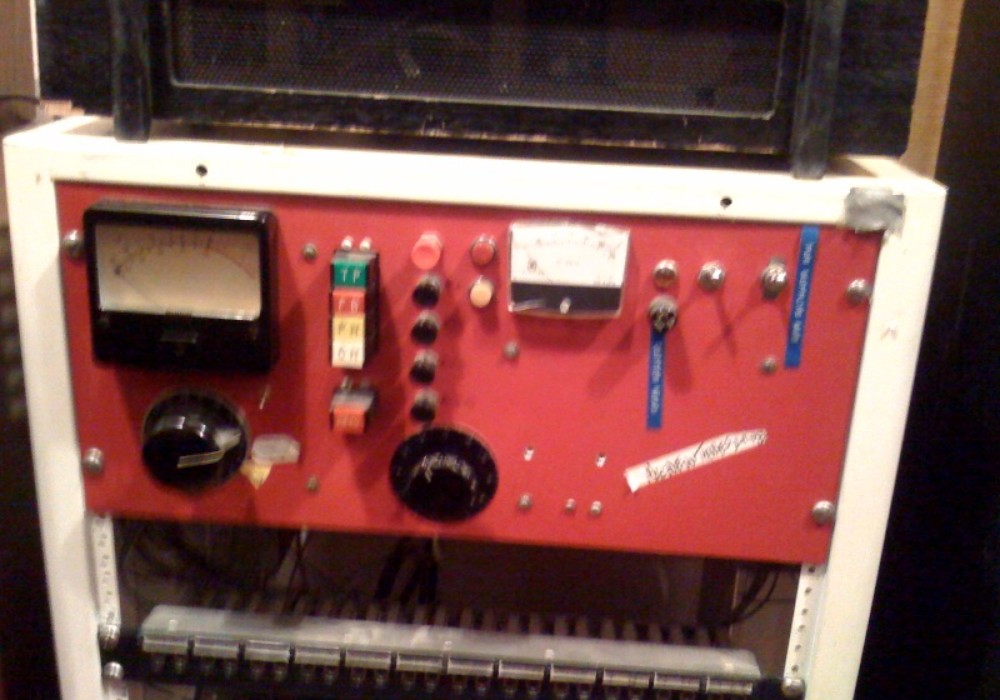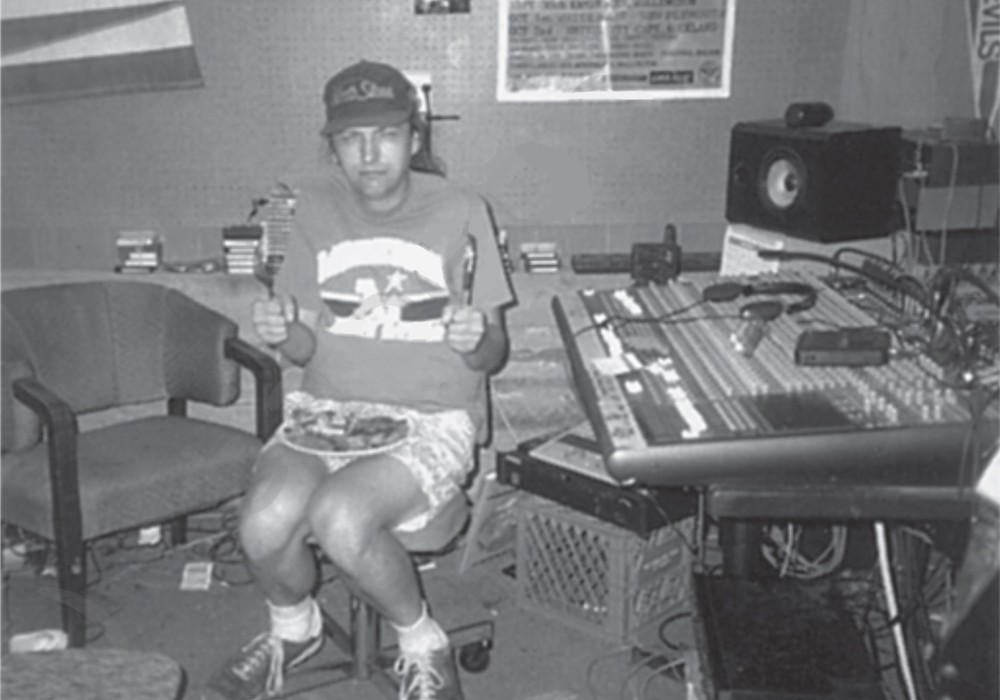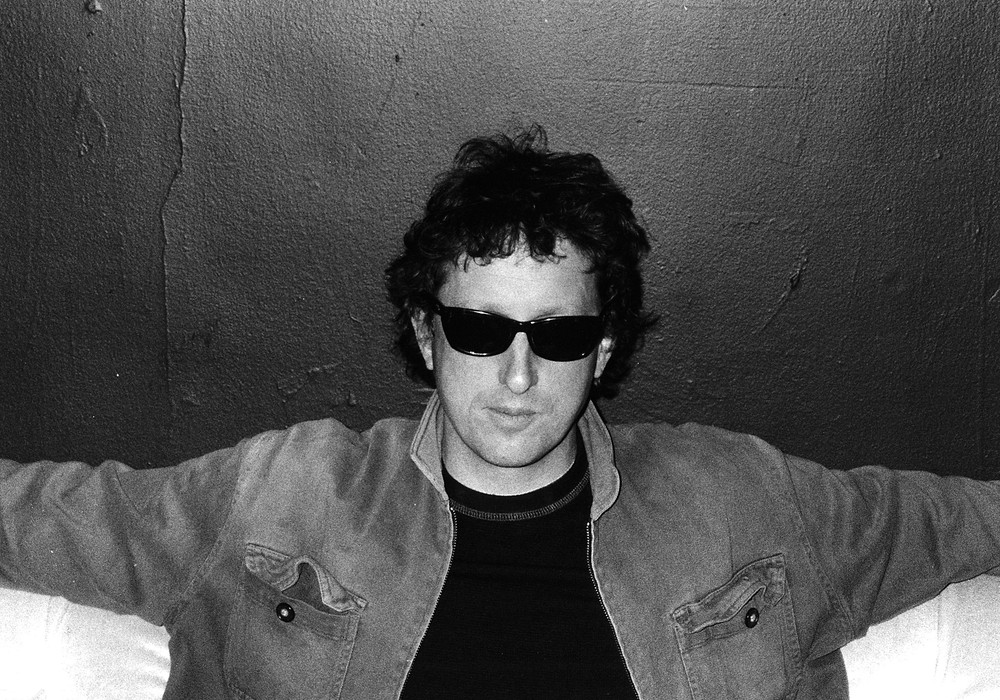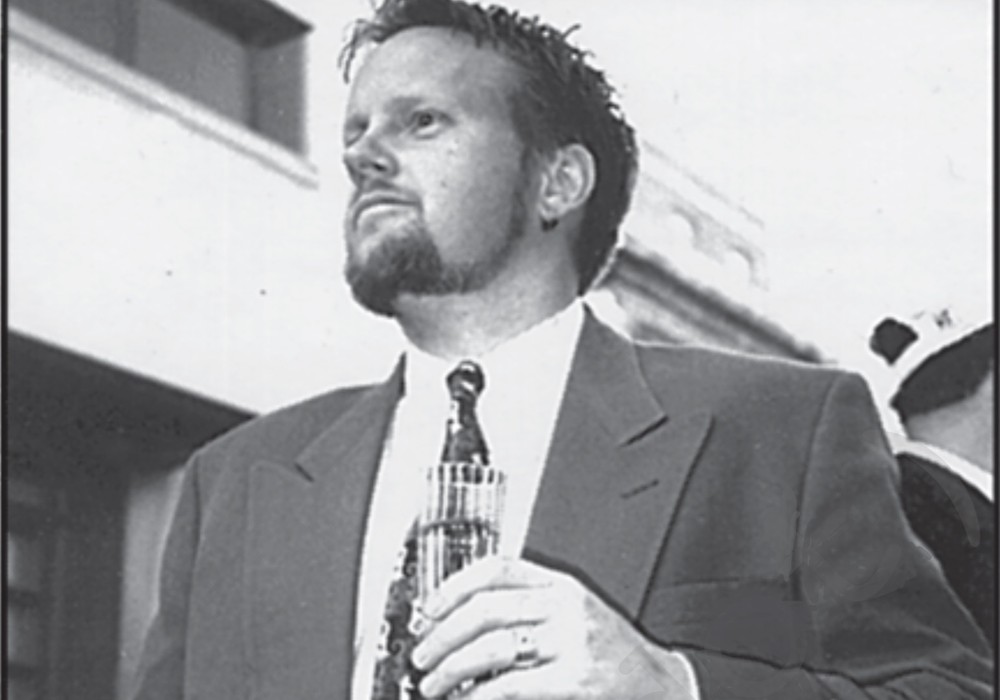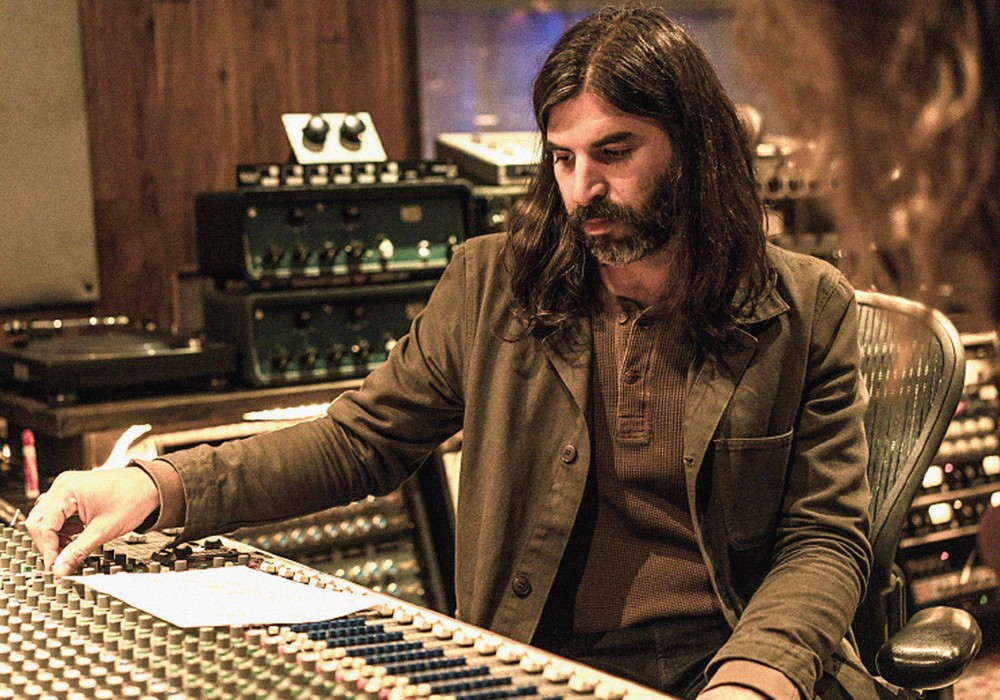You're a multi-instrumentalist, producer, singer, songwriter, and performer. Which of these roles feels the most natural to you?
I pretty fluidly oscillate between all of them. It's part of the way that being a solo artist in 2023 works. If you want to make a living as a musician you have to do everything, because that's the only way to do it. When I made my first album [SASAMI], I had so many production ideas – for other bands I was working with or playing in – that I didn't ever get to use because we had to go with whatever idea got voted in. So, my first album, before I even signed to a label or anything, was just me being able to be the executive in command of all the production ideas that I ever wanted to do – however stupid! [It] was very production-focused, and the songwriting came from a stream of consciousness style. I didn't really rewrite lyrics; I was obsessed with the arrangements. Then, with Squeeze, I knew I wanted to make a heavy album, and the songwriting and production followed. This grew from wanting the live show to be dynamic, energetic, and aggressive. The album that I'm working on now is still definitely about the live show, but I'm thinking a lot more about the songwriting, lyrics, and grooves – always synthesizing information from working on music, then touring it, then writing and going to the studio. Going between the three always gives me ideas for the next one, and all three parts are equally important. It's also part of being in my 30s: To think a lot more about how my art is fitting into society and my community, as well as a greater dialogue of culture than necessarily my very small scene or personal expression. I feel lucky to have been able to traverse so many different realms of these worlds.
You mentioned the spirit of your live shows, and the focus on performance that led to Squeeze. The vibe at your shows is electrifying, and I didn't know what I was getting into when I went. I'd heard some of your music, but I wasn't expecting what I got. I found myself laughing; just this giddy energy.
The show is so theatrical and playful. It’s basically taking the piss and machismo out of metal. Metal is this intense culture of people. Metalists take even the label of their type of metal very seriously, but then metalists are the dorkiest, sweetest, nerdy people, too. I feel like they're also the first people to admit that the world of metal is a little bit ridiculous from the very beginning. Cannibal Corpse is this gnarly metal band, and all their lyrics are about murder and cutting skin – the most gruesome, gory lyrics – but the lead guy is always posting on the internet about winning plush animals from claw machines and then donating them to people. Super sweet and dorky. I'm pretty into this element of duality that's in metal. A lot of the most famous heavy-rock-world people are wearing hilarious costumes, wear makeup, and are so theatrical and dramatic. To me, it's giving more “drama teenager” than anything. I wanted to tap into the drama and the fantasy. Fantasy is a big part of metal, which I find to be awesome. There are a lot of different metal genres where nature is a big theme. It was pretty clear from the beginning of putting Squeeze out that I wasn't trying to make a metal album. I wasn't trying to become a metal artist, but I wanted to bring these sonic elements of metal – like double kick drum, drop-tuned guitars, and slap bass – those kinds of sounds that feel like soundtracking a scene of violence, anger, frustration, and darkness. That’s what I wanted to bring to my indie rock music world, because that's the kind of cinematic soundscape that I wanted to create. It was appropriating those sounds. I come from a world where my community is made up of a lot of POC, women of color, and queer people who are very aware of identity politics and how that...
